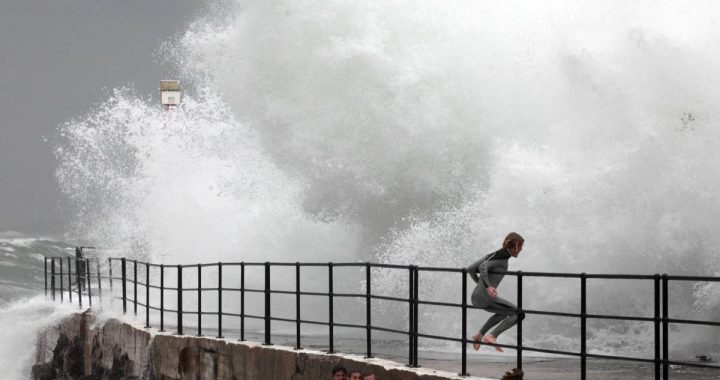2018. Julia sat at a table alone with a birthday cake. Stuck to the creamy icing were six wax candles and a red letter A. She had spent the morning mixing chocolate and eggs for her son, to see him enjoy the three or four slices he was capable of devouring, as he told her about his weekend with dad. Unfortunately, the boy ended up not meeting his mother at the beach, as agreed, because his father wouldn’t drive him there after all. This left Julia, on that warm miserable day, realizing that they, the already separated couple, should divorce.
. . .
Back fifty years, in Yekaterinburg, her father, Simon, ran an auto-repair enterprise. He had modernized the shop after taking it from his father, who couldn’t run a profit without making noise. The old way of thinking was to open a second shop, work longer hours, and hire party members, yet all these initiatives, the grandfather’s, remained in vain. So, he had to take what he could, hitting the bottle and the wife pretty good. Hit the children too. And the couch, where he slept away the daylight.
On his eighteenth birthday, in August, Simon stepped into the repair shop and told the employees that he was the new boss. Next, he went home, where his mother prepared peas and mayonnaise in chipped ceramic bowls, and told her that he was ready to take care of the family. Last, he stepped into the living room where his father dozed. A slight nudge shook him awake.
“What, what?” called the grandfather, the dim light of the room made his sleepy eyes hurt.
“What,” said Simon. “You forgot today’s my birthday?”
The grandfather rubbed his face. “Eighteen, huh?” He offered his son a glass. “Drink with your old man.”
“It’s empty,” replied Simon, keeping his eyes fixed on his father’s half-shut ones. The old man smacked his lips as he made his way over to a cabinet in the corner. Opening a cabinet, he gently lifted a black cat that was inside. There, the bottles were also empty.
“We’ll go to the bar,” exclaimed the grandfather, “to celebrate my eldest son!”
Snuffling towards the door, the old man stumbled over a still warm samovar on the floor. Spilled tea and blood stained the carpet, as his son lifted him softly.
“Let go of me,” said the old man. “Let me go . . .” Embraced only for a moment, he passed out, into a snore. Together with the siblings, the children loaded their father onto a train car headed for Moscow, leaving him with nothing but the rag they had used to wipe his head wound. They assumed that, at best, he would vanish somewhere along those 1,600 kilometers and no one would hear from him again.
It wasn’t until four years later, after Simon had saved the business, and placed his siblings in universities across the country, that a letter arrived to the old house, detailing their father’s unfortunate end. Apparently, he had gone past Moscow, all the way to Riga, in Latvia: where he fell into the Baltic Sea some chilly day. Local cobblers, who had come to know him as a street rambler, confirmed the frozen body.
“A touch of irony,” Simon whispered to his wife that night, the night they conceived Julia. “He did love the ocean.”
. . .
Malenka, the mother of Julia, was known as a quiet woman, easy to get along with, easy to catch a cold from, yet always kind enough to hold your place in the bread line. Otherwise she held her head down, whether she sneezed in public or spoke to government officials. It was surprising, then, just how much and just how long she insisted the family visit Cuba. It seemed her only wish was to see her expatriate sister in Habana. After 200 letters in six years, in which each sister lamented the distance, Malenka secured the visas and set her yearling daughter and husband aboard the month long voyage — departing from Riga. The trip was a birthday gift to her husband.
By a bend in fate, however, while out on the bow of the ship to view the same water his father had drowned in, the top of Simon’s head met the end of a lightning bolt. Tumbling overboard, he was swallowed by the ship’s break in the sea. For many reasons, the ship continued.
The mother, Malenka, always of weak health, now a widow, even caught tuberculosis before she and her baby landed in Habana. When they did reach it, her health had too far deteriorated. It seemed she had only enough time to hold a small funeral for her man, the child in her arms.
Candles, unpracticed prayer, and palms sweaty. Black, cave-tight space with frankincense.
About the meaning of her husband’s death, or about how she blamed herself for it, she only had her sister to tell. Her last dying word was a solemn promise asked: “Take care of Julia.” Her sister, the expatriate, used to a bohemian style of independent single lady, gladly adjusted her life to take in the child. To her it was a blessing.
But there was more. Melenka kept a diary, for Julia to one day read. In it, her last dying sentence was a promise asked seldom: “Remember your father.” So everywhere, no matter where in the world she ended up, she would bake a cake for the father she never knew — all chocolate, according to the diary — as soon as she was old enough to bake.
. . .
2018. Beach. Those six candles, wax. That red letter A, unlit. Salt in the air, dissolving. Divorce, decisions, dividing the kid’s time, Christmas, school responsibilities. He was turning six today. But his dad didn’t want to bring him, as he had said he would. Any minute and the last-straw text would enter, the one that said he wasn’t coming, that taxi driver dad, he wouldn’t make it to the beach. He and their son were still go-carting.
So Julia sat at the table, sat still, thinking thoughts. What a sweet cut to remember memories. She sliced a piece and ate, although she didn’t quite enjoy chocolate cake, the only kind she ever learned to make well. But her son did, just like his grandfather. The mushy sponge, and decadent flavor, made her mouth water. And chew. Swallow.
. . .
1970s Cuba. Because of her white skin, Julia had to stand out as humble, yet also had to fit in the best. She studied hard at home, so as to guarantee failure on tests. At recess, Julia did all the things her friends did, try cat food, pick on boys, and sneak out at night. When it came to dancing, she pretended to be terrible, until pulled by the wrist, then she flowered into the most stunning salsera. Always wilting, always blossoming, her life developed roots where no one expected her to. She kept an eye on the ground, and an eye out to sea.
Her friends called her “Love,” though her name was Levina. “Julia Love,” which in Spanish sounds like, “Who do ya love.”
In a country fascinated by automobiles, paired with the diary entries, she had reminders of her father everywhere. The bohemian aunt, who insisted on being called “Tia,” would remind her niece of her past, as well. Although, it wasn’t difficult to conjure a memory. Julia had only to see a ship out on the water and imagine the long ago voyage.
. . .
One part outsider, two parts curious, and three parts gifted: Julia earned a master in journalism at the University of Habana, after studying sculpture and art history at the Superior Institute of Arts. Thanks to her professors’ and peers’ expectations, even in her late teenage years, she became an expert on the fall of the USSR. By her mid-20s she integrated into a broadcasting career that she and Tia could be proud of. They moved to a new home. There, newspapers stacked so high they could stand for furniture. The number of novels to review, too, got so high that the women had to sacrifice the bathtub for storage. Her work lead her mind to travel around the world, and to understand it enough to be able to write cunning reportage. Yet her real eyes and her real feet never left the island.
Until on impulse, in 2008, at 34, she flew to Mexico City, for fun. She had never left Cuba before this trip, and after it she would never returned. It seemed every day there gave her a new reason to stay, even Tia thought it good for her niece, the career woman, to consider other possibilities. They couldn’t live together forever.
Many birthdays later, after having acquiring a new residency, a posh job as a television anchor, and a habit of going out on weeknights, she at last met the man who would sweep her off her feet, a Brooklynite. It was on the dance floor of an annual salsa congress — with beads of sweat on her chest like pearls, his hair gelled and greasy conducing the electricity in the air, as he twirled her — that they fell in love.
He knocked her up. The pregnancy was aborted. And they agreed to try again in the US, after getting married. Ten months later, she moved to NY, to live with this guy.
. . .
His name, Andrés Domingo Juarez. A taxi driver, who was exceptional at salsa, and believed that a summer holiday in Mexico City would change his life. He felt proud when his intuition turned out to be true, meeting the woman who would become his wife, and who, like him, agreed to terminate. His family would never have considered the option. Leaving at the end of summer with a wedding ring on, and only good news, the family slapped their youngest boy, then congratulated him. It took ten months for the spousal visa to enter. And that’s when he returned to Mexico, only to travel back to the States with his bride.
Julia Love, as they called her, soon learned the hard way what having the wrong combination of great features occur at the same time could turn out against you. A great job, great hobbies, and good looks led a single woman of 36 to do wonderful, silly things. So what, they had lost the token of their first summer together. They could try again. What mattered was that she had a man, a man interested in cars and dancing, and showed himself to stick by her side, even virtually, through the trying long distance relationship.
Plus, the idea of a new destination thrilled her. She knew she could bring something to the table. Maybe she could interest her husband in sculpture and art. After all, they were moving to New York. She would have the right to work, and had only to renew her residency, by applying for a permanent green card, after two years.
Unfortunately, by the time Julia’s two-year conditional residency was ending, so was the passion.
. . .
Death in the family (a father on his side, Tia on hers) and financial straits kept he newly weds’ first two dozen months in misery.
They never went to museums. Andrés dabbled with various carpooling apps. And Julia struggled to land a job even remotely comparable to what she was doing in Mexico and Cuba. It seemed journalism and broadcast in New York only counted native years in the industry as experience. Her time covering Russian relations for Cuban media, or reporting on Cuban affairs for a major Mexican news channel, didn’t mean much to the towers in the big apple.
Eventually, Andrés did manage to wiggle into a Yellow Cab. Most rookies fill and file the paperwork in a few weeks, but it took him twice as long. The couple must have made love four or five times after the passion of they had gotten settled in the newest of new cities.
Two years went by, with such little change. Suddenly it was time for the interview to adjust her status from conditional to permanent residency. That’s why she had an interview. The date happened to land on her birthday. And all she could think about was how she didn’t want to go through with it. Disappointment hit hard. She could end things, go back to Mexico. Or she could start an affair. For once, she went with the easier option. That’s when she met Jonathan.
. . .
But then, just before turning 38, she got pregnant again. And Andrés was definitely the father, somehow. So, on her birthday, conflicted, jobless, with nothing to fill her but a fizzled out love and the product of a failed relationship, she entered the interview, and told them she wanted to stay. The government accepted her petition. And everything changed.
She got a job as an intern at a local news station. It would turn into something valuable. Meanwhile, she kept seeing Jonathan. He was happy to be with her.
2018. And the taxi driving father sent her the text that he was still out with their boy.
Julia stood up and was set. She would end things. Fill herself elsewhere.




